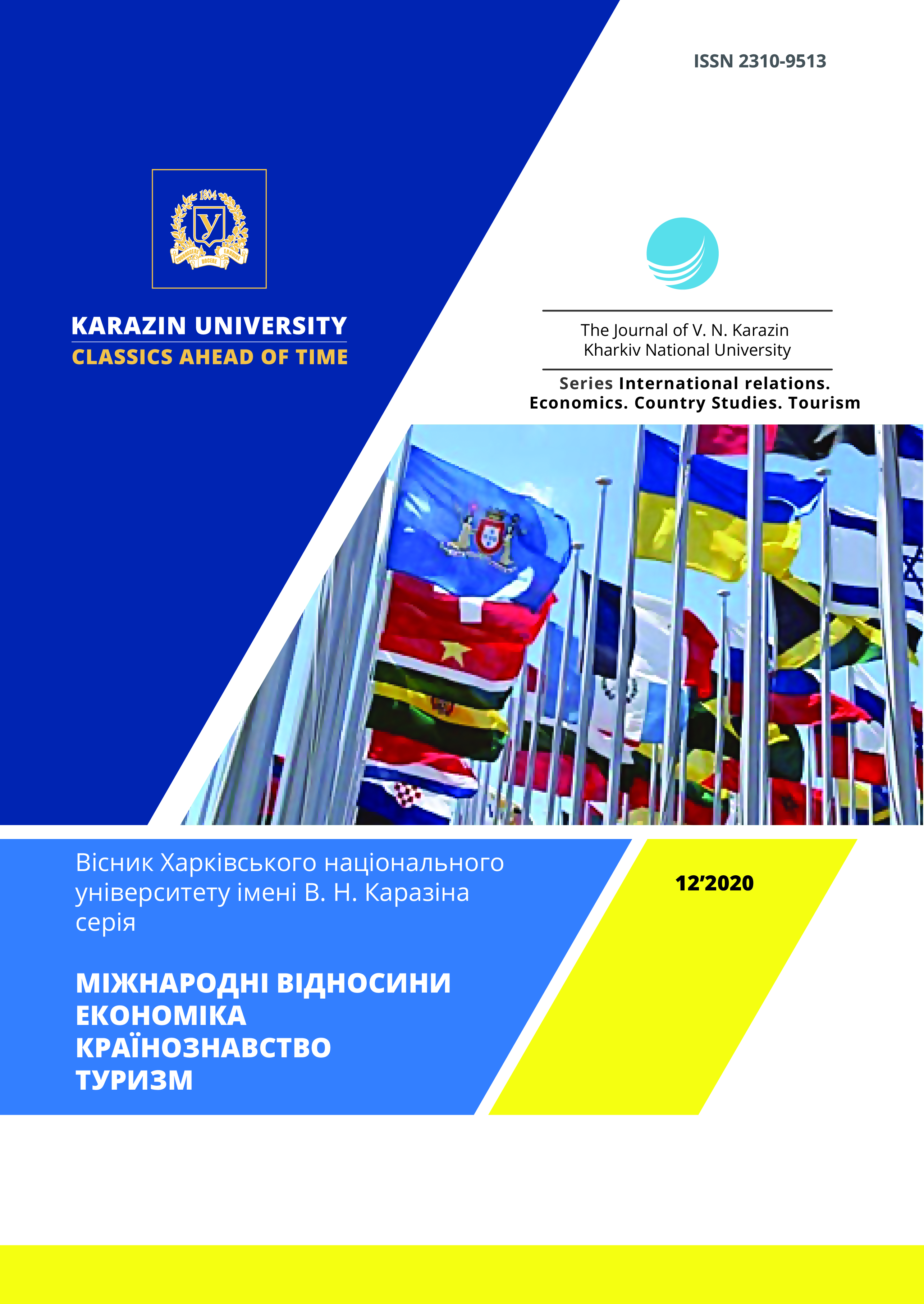Formation of a balanced system of indicators for assessing the adaptive potential of industrial enterprises
Abstract
The article defines that modern economic conditions indicate that domestic industrial enterprises operate in the realities of dynamism and require flexibility in comparison with internal and external competitors. Effective activity and fundamental positions of industrial enterprises determine the need for continuous improvement of existing proposals for the production of new goods and services, as well as constant monitoring, analysis and response to changes in conditions and parameters of doing business. The majority of domestic industrial enterprises require solutions to the problems associated with the insufficient efficiency of the existing management system and require the use of adaptive-oriented mechanisms based on innovation. The solution to these problems lies in the development of scientific and practical approaches to the effective management of industrial enterprises, provides for the consideration of an adaptive-oriented management system as an integral set of elements with a certain number of factors influencing their development. The formation of a system for assessing the adaptive potential of industrial enterprises in the context of the innovative nature of the economy is very urgent. To do this, it is necessary to deal with the multi-vector aspects of adapting the potential capabilities of industrial enterprises, ranging from theoretical justification to a practical solution in accordance with modern realities. The article defines that efficiency is formed in two directions, which include the adaptation process and the state of potential. Indicators are highlighted that affect the determination of the effectiveness of the management process by achieving goals and objectives, as well as the use of planning, forecasting, organization, control and motivation. Based on the analysis of the descriptive characteristics of indicators that form a system of adaptation directions for industrial enterprises in accordance with the new economic conditions and descriptive types of their potential, a system for assessing the adaptive potential of industrial enterprises has been formed.
Downloads
References
Akoff R. (1985) Planyrovanye budushcheho korporatsyy. Per. s anhl. / R. Akoff. M. : Prohress, 1985 . 328 s. (in Russia)
Andrushkiv B.M., Kuzmin O.Ie. (1995) Osnovy menedzhmentu. Lviv: Svit, 1995. 296 s. [in Ukrainian]
Bilyk R.S. (2016) Modeli innovatsiinoho rozvytku natsionalnykh ekonomik v umovakh hlobalnoi konkurentsii. Naukovyi visnyk Uzhhorodskoho universytetu. Seriia Ekonomika. Vypusk 2 (48). 2016. S.16–23. (in Ukrainian)
Yehorov I.Iu. (2016) Systema kompleksnykh indykatoriv otsinky naukovo-tekhnichnoi ta innovatsiinoi diialnosti v konteksti protsesiv yevrointehratsii. Nauka ta innovatsii. 2016. № 4. S. 21–23. (in Ukrainian)
Meskon, M. Albert M., Khedoury F. (2014) Osnovi menedzhmenta M.: Vyliams, 2014. 672 c. (in Russia)
Porter Maikl E. (1997) Stratehiia konkurentsii : per. z anhl. K. : Osnovy, 1997. 390 s. (in Russia)
Ponomarenko V.S., Minukhin S.V., Znakhur S.V. (2013) Teoriia ta praktyka modeliuvannia biznes-protsesiv: monohrafiia Kh. : Vyd. KhNEU, 2013. 244 s. (in Ukrainian)
Prokhorova V. V., Chobitok V.I. (2013) Potentsial pidpryiemstva: formuvannia i otsinka: Navchalnyi posibnyk. Kh.: NTMT 2013. 212 s. (in Ukrainian)
Prokhorova V. V. Protsenko V. M., Chobitok V. I. (2015) Formuvannia konkurentnoi stratehii pidpryiemstv na zasadakh innovatsiino-spriamovanoho investuvannia: monohrafiia. Kharkiv: Ukrainska inzhenerno-pedahohichna akademiia, 2015. 291 s. (in Ukrainian)
Chukhrai N. I. (2002) Formuvannia innovatsiinoho potentsialu pidpryiemstva: marketynhove i lohistychne zabezpechennia. : monohr. L.: Vyd-vo NU «LP», 2002. 315 s. [in Ukrainian]
Authors who publish with this journal agree to the following terms:
- Authors retain copyright and grant the journal right of first publication of this work under the terms of a license Creative Commons Attribution License 4.0 International (CC BY 4.0).
- Authors are able to enter into separate, additional contractual arrangements for the non-exclusive distribution of the journal's published version of the work (e.g., post it to an institutional repository or publish it in a book), with an acknowledgement of its initial publication in this journal.
- Authors are permitted and encouraged to post their work online (e.g., in institutional repositories or on their website) prior to and during the submission process, as it can lead to productive exchanges, as well as earlier and greater citation of published work.




